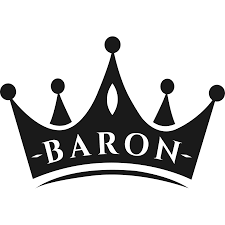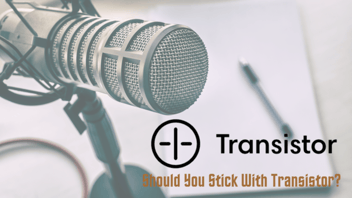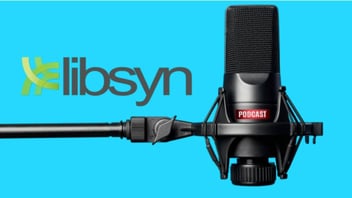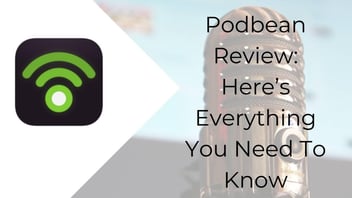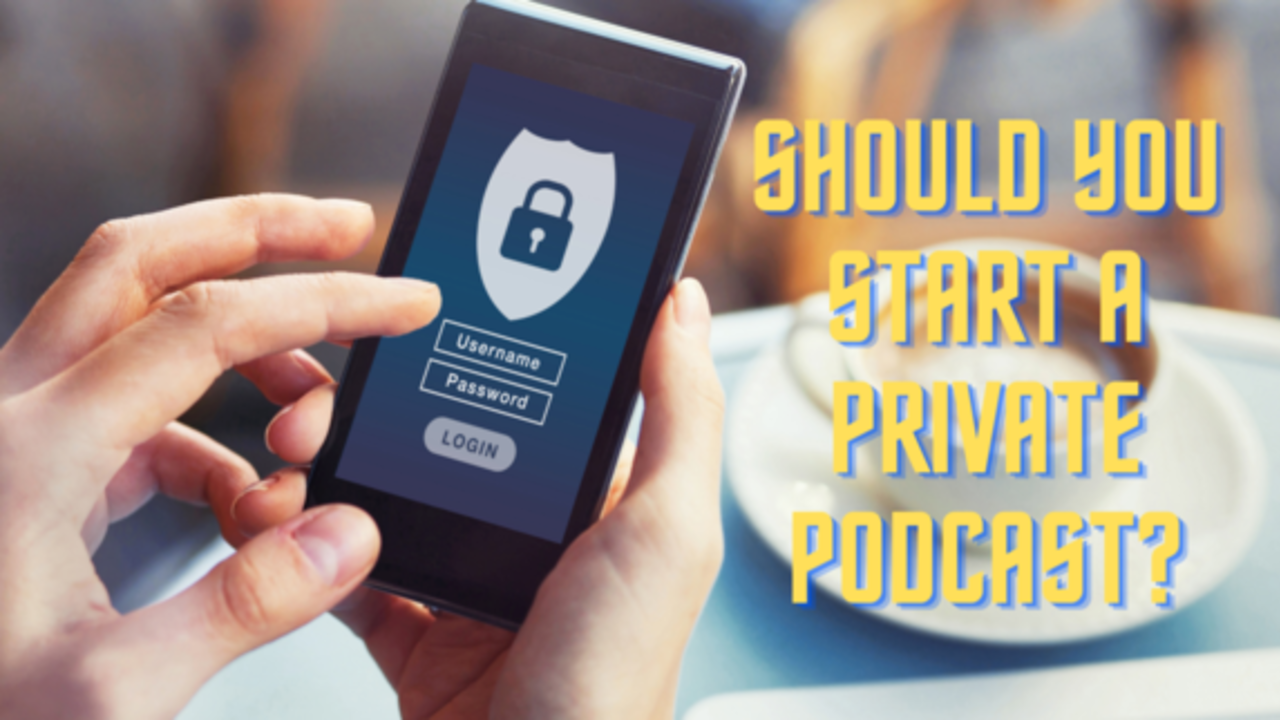
Podcasting continues to grow as more and more companies and individuals create shows almost daily. That’s expected since millions of Americans tune in to podcasts. Most podcast listeners are also high earners. So it makes sense to get your message in front of the audio audience from a revenue standpoint. Most podcasts are open to the public on repositories like iTunes, Spotify, and Soundcloud. Recently, member-only, private podcasts have been holding its own. So should you do a private podcast?
What’s a Private Podcast?
As the name suggests, private podcasts are not available for the public. The podcaster would record unique content for users behind a paywall or password-protected RSS feed. People love exclusivity. And if your content is of high quality and high value, people would gladly subscribe to a private podcast.
Great uses for a private podcast
There are a few ways you can use a private podcast. One of the more obvious ways is as a source of income. You can create a podcast as part of a membership site or leverage your influence for a private show. If you get several thousand subscribers to pay a small fee, you can easily have a 6-figure or 7-figure business.
Private podcasts also work well for businesses who want to communicate with employees or special segments of staff. They can publish training episodes, conversations, or special messaging from CEOs or other team members. Private podcasts are a great way to communicate without disrupting daily routines.
Simply put, some podcast listeners can do without ad rolls. Since ads are a way to keep the podcast alive, there has to be a way where everyone wins. With a private podcast, you can create ad-free episodes behind a paywall. The subscribers will be happy to support you in exchange for an ad-free experience.
Speaking of ads, some podcasters see them as a necessary evil. They mess up the flow of the podcast but can earn them some serious cash in return. A private podcast with a paid subscription ensures the podcaster does not have to depend on downloads or other metrics to monetize their work.
How To set up your private podcast
To start your premium podcast, you’ll need the same tools as you normally would for a public show. I’ve written some content before on how you can start a podcast for less than $500. In short, you’ll need the following:
- A high-quality microphone
- Get supporting equipment like a pop filter and mic stand or boom arm.
- An audio recorder or audio recording software
- Editing software
- Find a podcast hosting service or way to distribute the content.
Plan your content and record your episodes as you would a standard podcast. From there, you’ll need a way to make the podcast private. If the podcast is going to be a paid membership, you need to find a way to place it behind a paywall of some sort. This is where the podcast hosting service will be crucial. You won’t be distributing the podcast through conventional means. So your host should have an option for private episodes or a personal feed. If your host does not have premium options, you can use another service to place your RSS link behind a paywall or password-protected service. Here are five sites or services that can help:
1. Libsyn
Libsyn is a podcast hosting service that’s been around since 2005. Libsyn allows you to store your content and distribute it to several feeds, including iTunes, Spotify, and SoundCloud. You can upload supporting content like videos to increase the reach of your podcast. On Libsyn’s advanced plans starting at $20/month, you get access to MyLibsyn Premium Paywall.
With MyLibsyn, you can place episodes behind a subscription paywall. Users create a username and password to get access to not only audio but video and PDF content on a special premium page. You can decide if you want just special content or the entire back catalog, do simple email marketing, and produce special promo codes. For premium content, you will have a revenue split with Libsyn, which could be as high as 70:30 based on the number of subscribers.
2. Transistor
Transistor is another podcast hosting service that provides solid analytics, secure hosting, and excellent distribution. You can start as many podcasts as you like on one account. That’s a plus because you can have a private podcast set up in just a few clicks. Transistor’s $49/month plan gives you a private podcast with up to 500 subscribers. In comparison, the business plan allows for three private podcasts for 1000 subscribers. Transistor works for smaller audiences, perfect for medium-sized businesses looking to communicate with staff. Subscribers can find your private podcast on their favorite podcast player once you add their information to your private podcast list. The subscriber receives an email to access the podcast. It’s a great way to communicate while keeping much-needed privacy quickly.
3. Substack
You may not have heard about Substack before, but it’s a newsletter service where users can create their written content with subscribers. With Substack, you can create a Premium newsletter, charging your subscribers either monthly or yearly, with Substack taking a small percentage of each subscriber. You can also use Substack for podcasts as you can upload and embed audio files within the newsletters and distribute them through popular channels if you choose. The subscriber gets it through email, as well as on your premium Substack page. Don’t worry. They can listen through the podcast app of their choice. This is a great way to distribute premium content quickly and cheaply.
4. Patreon
Over the last few years, Patreon has been a popular choice for creators to monetize their work. With Patreon, someone can become a Patron. This person pays you to keep creating. You can even develop tiers that will give subscribers access to more episodes or exclusive content. Patreon allows you to create a private RSS feed, where you can share your private podcast. Your fans can then take the link and add it to their podcast player of choice.
Time to start your private podcast
Based on the reason for your private podcast, you’ll know the best route to choose. If it’s the premium podcast route, Substack and Libsyn may work best. Transistor works for private content for a set number of persons like a company or a small community. With premium podcasts, make sure to give as much value upfront as possible before going to a paid service. Everyone should consider a private podcast as it’s a great way to diversify your income or communicate in a personalized way.
If you’re looking for help to start and grow your podcast, you’ve come to the right place. After running a successful podcast with thousands of downloads, I know the ins and outs of podcasting. Sign up for more tips and content on starting your podcast, growing your podcast, and using content marketing to improve your business growth.
